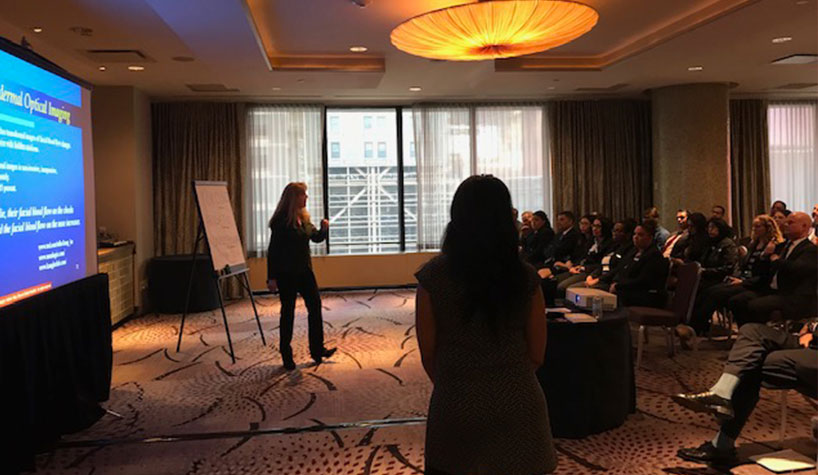NEW YORK—The New York Marriott Marquis is infusing omoiyari, which in Japanese means compassion, into its training of management and associates.
Poor cultural understanding can impact business performance at all levels—it may drive away hotel guests, break down communication between staff members and guests, diminish the ability to deliver great customer service and create potential conflicts among teams within the company. However, embracing and actively learning about cultures other than one’s own can foster positive change and build a path to success.

“At Marriott International Inc., we continue to see guests come to our hotels from all over the world, and we want every guest to feel welcome,” said Seema Jain, director of multicultural affairs, Marriott International. “The New York Marriott Marquis proactively had its hotel staff learn about the Japanese culture to create an exemplary experience for a large customer group. All disciplines, from front desk to housekeeping to food and beverage, learned and worked collaboratively to make the experience for our Japanese guests memorable. It all begins with a good foundation of cultural competence, which leads to cultural confidence when delighting our guests.”
Understanding variations in cultures is not only a valuable skill in the hotel industry—it is an imperative, explained Terri Morrison, author of Kiss, Bow, or Shake Hands, a guide to proper international business protocol.
“Our increasingly global and multicultural world guarantees that hotels will host international guests and will work with colleagues from different cultures. How diverse clients and employees are treated has a direct impact on where they will book their business or leisure travel, and where they may wish to work,” said Morrison. “If a group of Asian or Latin American business people feel welcome in your hotel, they will not only return—they will spread the word to their networks as well. The same goes for all cultures that value relationships over rules. They trust recommendations from their networks, their friends, and their relatives over a hotel’s price or room capacity. A positive experience for 10 visitors from Tokyo or Rio de Janeiro can ripple out to hundreds of people in their networks.”
Marriott International’s Culture Day program began in May 2014 and focused on one culture—Indian—and one discipline—sales. It was designed to help the brand’s teams become more culturally competent when welcoming multicultural guests.
“We have tripled the program in the last few years as our associates know that cultural competence will not only help drive business success, but also is part of our long-standing culture of inclusion,” said Jain. “Since Marriott founded the program in 2014, the company has hosted more than 50 Culture Day trainings in more than 30 cities and eight countries covering 13 cultures.”
Marriott’s multicultural affairs team provides the tools and resources for associates worldwide to have the opportunity to learn about cultures and best practices.
“Our associates can find information on our intranet site, including a quarterly newsletter highlighting holidays worldwide, information on attending a culture day program, webinars and more,” said Jain. “As our teams learn and see satisfied guests and business success, it encourages them to want to learn more. For example, Indian Culture Day participants absorb the history and significance of henna through the work of an on-site henna artist and learn about Indian attire through a sari-tying demo. The significance of a bar and bat mitzvah is explored during Jewish Culture Day and the key events of a quinceañera are reviewed during Mexican Culture Day.”

Morrison outlined a few steps hoteliers can take to start being culturally inclusive in various areas of the hotel:
Front Desk
There are different responsibilities among different divisions in hotels—if they work at the front desk, they might want to learn appropriate greetings, titles, name order and business card exchanges for various cultures.
Guest Services
For guest services, the body language is important—along with a few words like “hello, excuse me, and thank you” in the client’s language can be helpful. Also, how one can assist guests with special requests with limited language skills.
Food & Beverage
Nonverbal communication is critical in the food and beverage department as well. Understanding that guests will appreciate being offered a (translated) menu with two hands (never the left hand) and may just make extended eye contact when they need something—rather than raise a hand or call the wait staff over—will ensure that your guests have an enjoyable experience at the restaurant, according to Morrison.
“Whenever guests arrive at any hotel, they are out of their element. They may be 13 hours out of sync, lost geographically, confused by the currency, the language, and the nonverbal signals. They may even be repulsed by local odors and noise,” said Morrison. “A well-prepared hotel staff with strong intercultural skills can alleviate much of that stress. Appreciating diversity with both employees and guests can give hotels an international reputation as a safe, civilized and successful destination.”
